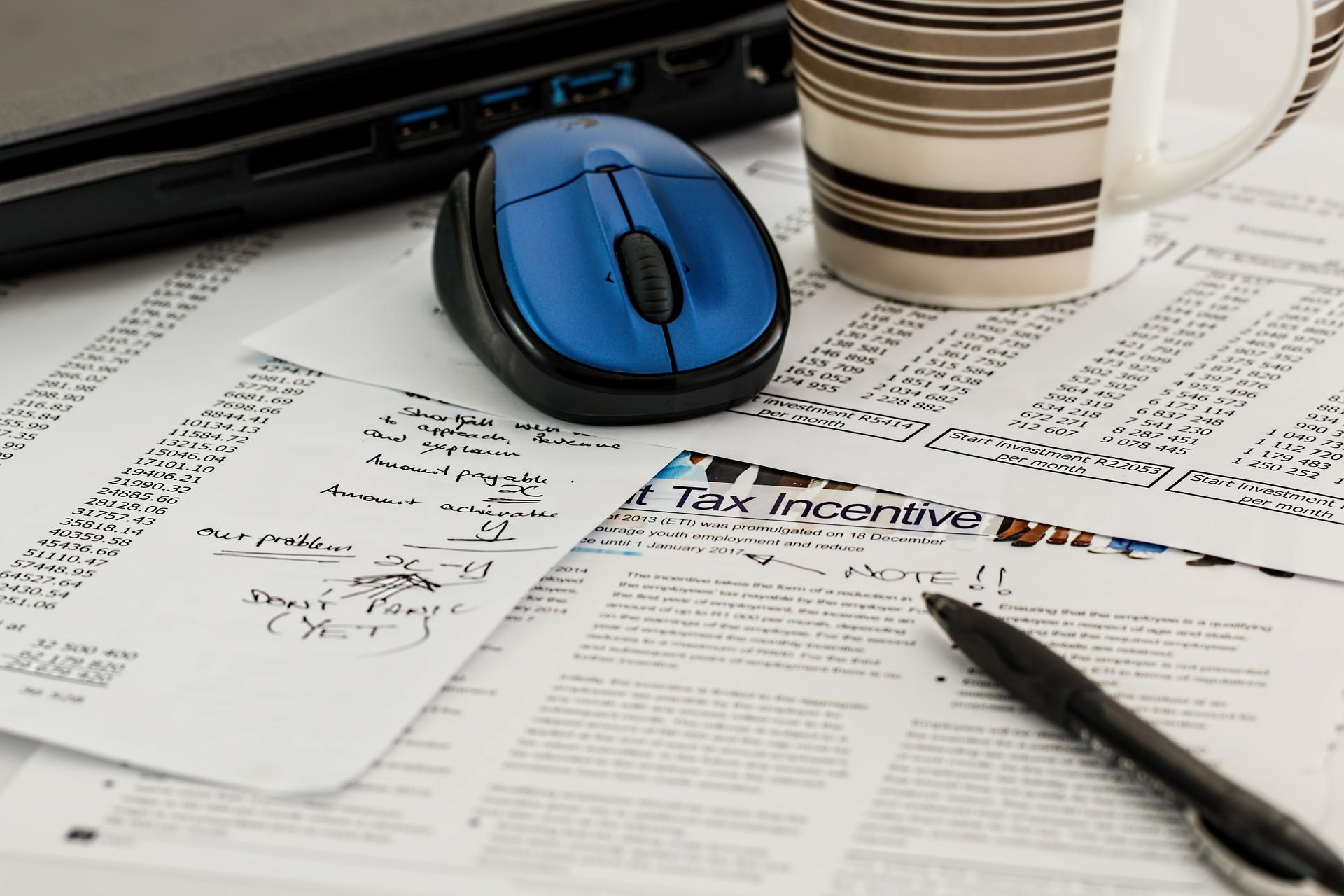Explore Small Business Finance Topics
Discover our most popular topics for Canadian solopreneurs and small business owners. From income tax and GST/HST to QuickBooks tutorials and managing your business finances, these guides are designed to help you move from financial uncertainty to financial confidence.
Click on any topic and scroll down to see related articles.
📑Canadian Income Tax
Guidance on filing and planning your Canadian taxes, from T1 and T2 returns to instalments
📊Managing Business Finances
From cash flow to pricing and metrics — learn to manage your business finances with confidence.
🏢 Canadian Business Structure
Should you incorporate? Stay informed on sole proprietorships, corporations, and registrations.
💰 GST/HST & QST
Understand how to register, file, and maximize input tax credits while avoiding common mistakes.
🧾 Guides and Tutorials
Practical accounting processes like reconciliations, journal entries, and reporting.
📝 Deductions & Expenses
Learn which expenses are deductible and how to track them for maximum tax savings.
Quebec Taxes & Business
QST, Revenu Québec filings, Quebec payroll, and provincial rules every entrepreneur should know.
👤 Paying Yourself
Salary vs dividends, management fees, and how to pay yourself from your corporation or small business.
💻 QuickBooks Online & Tools
Tutorials, guides and time-saving tips for using QuickBooks Online effectively.
🏦 Money & Personal Finance
Personal finance strategies for entrepreneurs, from RRSPs to saving for taxes.

Top 5 GST/HST Mistakes (and How to Avoid Them)
Whether you have just started your business venture or have a couple of years under your belt, navigating GST/HST can be confusing and stressful. There’s is lots of information on the internet but hard to know if it is trustworthy or comprehensive. Consequently, it's easy to make mistakes that results in time wasted or worse, unnecessary interest, penalties and letters from the government. From registration errors to missed deadlines, you can avoid these mistakes with the right knowledge.
In this post, I'll walk you through the five most frequent GST/HST mistakes I’ve seen (in my fairly extensive experience as a small business accountant) and share some tips on how to avoid them.

What Small Business Owners Need to Know About Income Tax Instalments
Transitioning from being a full time employee to small business ownership or self employment means that you need to cultivate self discipline. You can no longer rely on your employer to take care of business functions that do not relate to your job ,and must take a much more active role in ensuring that you remain on top of your obligations whether it is collecting payments from customers, paying bills or ensuring that you do not run afoul of Revenue Canada. One of these obligations requires that you calculate and pay the full amount of your income taxes when you file your income tax return, rather than having your employer remit deductions from your paycheck directly. In addition to having to calculate and pay your income tax, once you exceed a certain income threshold, you are also required to pay income tax and sales tax instalments.

What Unincorporated Small Business Owners Need to Know about Filing Their Taxes
Being a small business owner comes with challenges, not the least of which is doing your taxes. While most Canadian taxpayers have relatively simple tax returns that can easily be completed using software, small business owners have the additional burden of reporting details relating to their businesses. This can seem onerous, but understanding what needs to be done, and when, can significantly help reduce the stress and ensure that the tax filing process is smooth and straightforward.
One of the types of income on which you pay income taxes is what Revenue Canada (CRA) refers to as “income from self-employment” that is essentially the same as income from a small business. If you do have business income, then you are required to declare your business income on a tax return. As an unincorporated small business owner, this business income is reflected on a separate schedule on your personal tax return. The schedule is called a T2125, which is a “statement of business activities” (discussed below) and at minimum requires that you show any income you earned from a business venture. If you have incurred expenses to earn the business income, you may also deduct these from your gross revenues or sales to arrive at net income from business. Unlike a simple personal tax return with no business income, the information that must be reported on a T2125 is generally not simply provided to you on a tax slip, such as a T4 or T5, but must be compiled and calculated.

5 Reasons Your Small Business Needs an Accounting System
So, what exactly is an accounting system? At its core, an accounting system is a method of organizing your financial data. There are various types of accounting systems out there, ranging from complex enterprise solutions to simple small business accounting software like QuickBooks. You can even use a spreadsheet if your business is straightforward with minimal transactions. The key is to have some system in place to manage your finances effectively.
Now, let’s explore the five reasons why every small business, including yours, needs an accounting system.

10 Financial Challenges of Being a Solopreneur
Being a solo entrepreneur or solopreneur (to use the pithier term) can be extremely rewarding but also brings some unique challenges. It can be a lonely existence, as you often work from home, and don’t have a water cooler where you can discuss the latest tv show you are watching. You have to become an expert on subject matters well outside of your subject of expertise, as all of us who have to troubleshoot a computer problem or write our own copy for social media and blogs, can attest to. There is no-one immediately availably to bounce ideas off of. And we have to work much harder at establishing process, routines and accountability since we don’t have a boss breathing down our necks.
In addition to all of this, solopreneurs often face specific accounting, tax, and finance challenges.

20 Essential Tax Facts for Small Business/Self Employed Owners
Probably the most popular question posed to accountants and tax preparers (especially around this time of year) is what types of expenses are deductible. The short answer is that an expense is considered to be deductible if it has been incurred with the ultimate purpose of earning income. For example if you purchase a domain name with the intent of setting up a website to sell your goods or services, this would be a deductible expense. However, if the purpose of your website is simply a place to show pictures of your cat, this would not be considered a business and therefore not a deductible expense. Of course if your cat picture website starts to become popular and you decide that you want to actively build this business by advertising on the site or partnering up with cat product resellers, your non commercial hobby could then be considered a business. Since you now have the intent to build a business the income earned would have to be reported and expenses incurred to earn this income would be deductible.

How to Register your Sole Proprietorship in Each Province
Once you have decided to start a new business and have concluded that the best structure for your business is a Sole Proprietorship, the next step is to determine if you need to register it. If you are using your exact first and last name, and only your exact first and last name, then you are not required to register your business, regardless of which province your are located in. However, if you are using a business name that is anything other than your own name, you are required to register your business in all provinces, with the exception of Newfoundland and Labrador where registration of Sole Proprietorships is not required.

Tax Obligations Every Canadian Small Business Should Know
It is therefore prudent for both sole proprietorships and incorporated businesses to keep on top of their tax filings.
In this article I enumerate the tax obligations for most small businesses in Canada along with links to articles to help you understand each one better.

Essential Facts about Shareholder Loans for Incorporated Small Business Owners
There are three primary ways in which you, as an owner-manager, can withdraw funds from your corporation. You can pay yourself a salary, you can declare a dividend or you can borrow money from the corporation. When you borrow money from your own corporation the Canada Revenue Agency (CRA) has put into place strict rules as to when you have to repay the loan to ensure that the owner-manager does not avoid paying taxes indefinitely.

How to Register a Small Business in Quebec
Budding entrepreneurs wanting to setting up a small business (or becoming self employed), either on a full time or part time basis, are often not sure where to start. The process of registering a business in Quebec, depending on your circumstances, can actually be quite straightforward . Below we look at the questions that you need answer to determine your business registration obligations:

Why and How to Transition from a Sole Proprietorship to a Corporation
When starting your new business, often it makes sense to choose the simplest structure which is the sole proprietorship. This allows you to test the viability of your business idea and to see if the lifestyle and the related stress that goes along with being a business owner suits your personality and is in line with your long term goals. Alternatively, you might want to keep everything simple and not add any unnecessary complexity. Registering and maintaining a sole proprietorship is fairly straightforward ; many business owners don’t put much thought into the financial aspects of it until tax time (when the mad scramble ensues). Once you have a corporation, however, the level of complexity and commitment increases

What Types of Advertising/Marketing Expenses Can Small Businesses Deduct?
In the past advertising for small business owners mostly involved ads for print, television or radio (a catchy jingle was always a good way to go), cold calling (rarely a pleasant experience), sending out flyers or courting potential customers at a conference. Unfortunately, these types of advertising were problematic in that it is difficult to gage the direct impact of their effectiveness. Additionally, they were often fairly costly, which can especially difficult for small business owners to afford.
Over the past few years the avenues for advertising have grown exponentially. Many types of advertising don’t even cost anything, except time. You can buy ads on numerous social media outlets that appeal to your target market or if you want to go the free route, you can set up a social media account, post regularly and build an audience. Alternatively, you can set up a website which you can then optimize so that google and other search engines display it when someone is looking for your product or service. Email newsletters are also another effective and direct way of reaching potential buyers. One of the great benefits of these types of advertising is that you are better able to monitor the effectiveness of your chosen strategy.

Frequently Asked Questions About Salary and Dividends by Owners of Corporations
As an accountant and small business financial consultant, one of the most common areas of confusion and questions by small business corporation owners revolves around how to pay themselves and if one way is preferable to another. I have addressed some of them in my blog posts on the factors to consider when choosing salary or dividends and the types of ways to structure your remuneration . There are however specific questions that common up frequently:

What Types of Car Expenses Can Business Owners Deduct
Access to a car can be crucial to running a small business effectively. Costs of ownership, however, can be high relative to your revenues, especially in the early stages when your business is not hugely profitable. Luckily, Revenue Canada (CRA) and Revenue Quebec (RQ) allow both unincorporated/self employed individuals and owners/employees of corporations, who use their cars to generate income, to deduct the relevant expenses. Both CRA and RQ provide detailed guidance and have specific rules relating to the write off of car expenses. I discuss some of the main provisions that impact small business owners in this article and provide guidance on the differences between unincorporated (self employed/small business) owners and corporations.

How to Calculate Your Automobile Taxable Benefits for the Purposes of the T4 and Rl1
The majority of businesses require the use of cars and other types of vehicles to meet with clients, and suppliers, purchase goods, make service calls and of course check in with their accountants. The usage of a car is not necessarily straightforward as many employees and business owners use their vehicles for both business and personal reasons. As such, Revenue Canada has had to implement tax legislation that ensures that the personal portion of automobile usage is properly adjusted and excluded from deductible businesses expenses.
